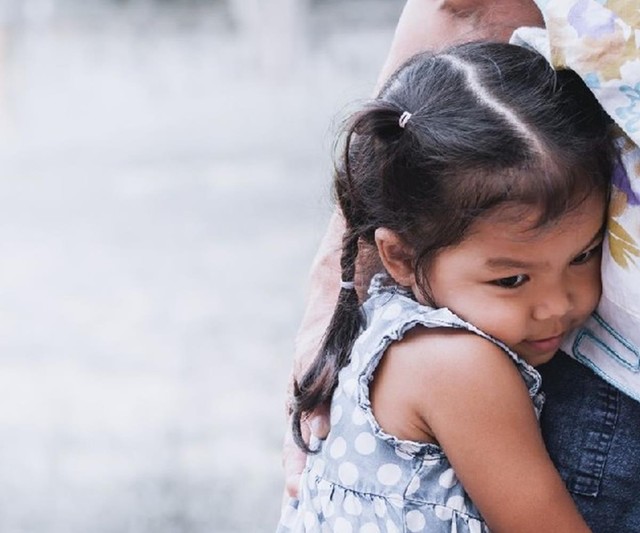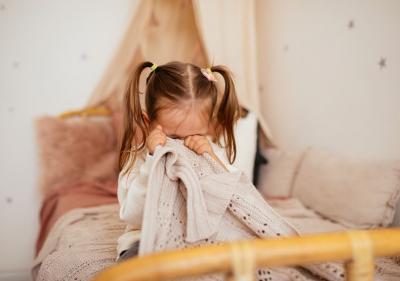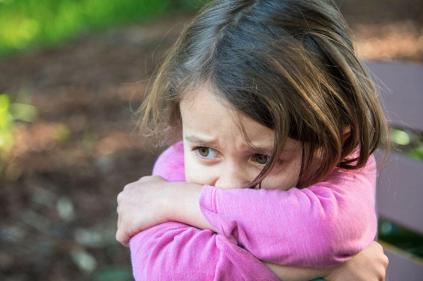Separation Anxiety is the most common anxiety seen in children under 12, and the numbers presenting with this have increased since Covid.
‘Separation Anxiety’ is a normal developmental phase that can begin around 6 months and continue until 3 or 4 years. Some typical signs of separation anxiety include clinginess to parent, crying or tantrums at times of separation. This makes perfect evolutionary sense! The child’s survival brain (amygdala) is activated when they see one of their main caregivers leaving. Separation anxiety can escalate if your child is tired, hungry, ill or if they dislike something at school (e.g. sensory triggers, boredom, change in routine).
Having a child that is screaming as you leave the school can feel so overwhelming. In my work with parents, I like to break things down into 3 phases, each with their own strategies that I have seen make a significant difference when used consistently.
- Before the Separation:
Check in with yourself: what do you need to do to ensure that your nervous system is as regulated as possible going into the separation? A walk or gym time before school? Deep breathing or mantras?
Check your expectations & beliefs: You do not need to ‘stop’ the crying or ‘fix the feeling’, you just need to help your child through it. Check for any ‘faulty’ beliefs that are not helping you (e.g. “I am being cruel to my child”). You are not doing anything wrong; it is ok for your child to express their upset at you leaving. If you cannot manage their distress, then it will be very difficult for them to learn to manage it.
Practice separations: this graded approach will help your child’s nervous system to get used to the process and so they will become less distressed over time; their amygdala will no longer sense it as a significant threat. It also gives you chance to practice the ‘script’ that you will use when it comes to the ‘drop-off’. Start with small, brief separations (e.g. 5 mins in another room, 10 mins at the shop) and build it up gradually.
Explain the routine: It can help to draw out the routine of what will happen when you are gone. Predictability tends to help alleviate anxiety.
Validate the feelings: If your child starts to get upset when you explain the separation to them you can say; “It’s ok to be upset. When I am not there, your teacher will be there to help you, just like I do at home”.
- The separation:
Keep it brief, simple and as calm (but firm) as possible; “I’m going to drive to work now, but I will be back later. Love you. Goodbye”. You can have a gesture that you use as part of this goodbye ritual such as a high-five or a hug.
Validate the feelings; if your child is very upset, you may wish to acknowledge this but try to keep it brief. “Yes I know you are sad that I am leaving and that’s ok. I’ll be back later and we can go to the park”.
Confidently leave: Try to avoid over-explaining or bargaining. Calmly and confidently leave without adding any excess emotion of your own if you can. Remember, you are helping your child to develop their own self-confidence and independence.
- After the separation.
It is important that the person you leave your child with is quite comfortable with ‘big’ emotions. Some helpful steps for this persona are;
Validate & Reassure: “Mam always comes back. I know that you miss her and that is hard. That’s ok. I know she misses you too”.
Activate ‘thinking’ brain: Rather than just distract, it can often help to talk about the parent; “Do you know where mammy is right now? I can tell you. She’s gone to work”. This validates the child’s feelings and helps them to move from their ‘emotion’ brain back into their ‘thinking’ brain.
Reassure and move on: “And when she is finished work, where will she go? That’s right, she will come back here to collect you” “And so what would you like to do now; playdough or drawing”? This helps the child to process what is happening until the tricky feelings pass naturally by themselves.
I hope this helps! If your child’s distress continues or gets worse, of if they start to avoid going places as a result of their anxiety, you should seek additional support with this.
Dr. Rebecca Quin
Chartered Senior Clinical Psychologist
Dr. Rebecca Quin is a chartered senior clinical psychologist & director of the Psychology Practice, Bray which she founded in early 2022. The practice caters for children and adolescents who are experiencing mental health difficulties.
She has 15 years experience working with younger people & their parents within primary care, disability and acute mental health settings. She has also worked in the area of neuropsychology in King’s College Hospital and the Maudsley hospital, London as well as Beaumont hospital in Dublin, Ireland.
Rebecca’s areas of special interest include childhood anxiety, autism and the relationship between physical activity and mental health. She is currently delivering online and in person workshops for parents and schools on these topics. She also carries out a wide range of assessments for children and teens.








